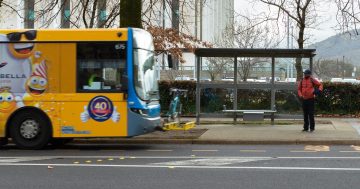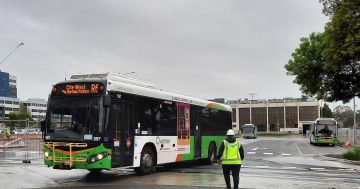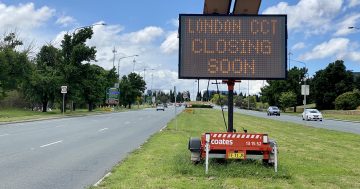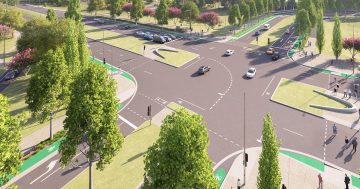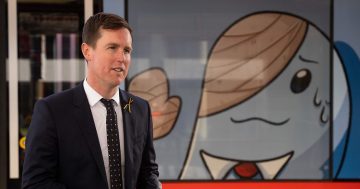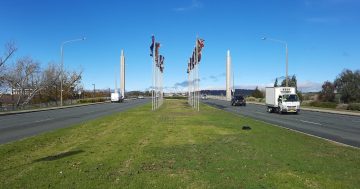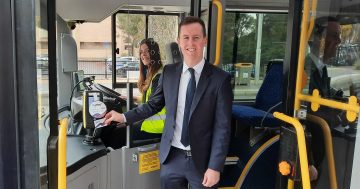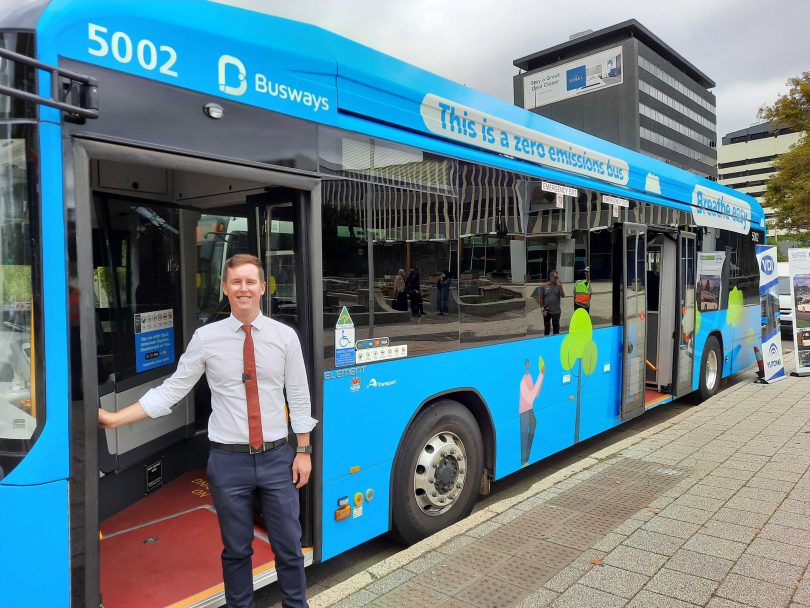
Minister for Transport Chris Steel has rejected calls for free bus travel. Photo: Ian Bushnell.
Opposition spokesperson for transport Mark Parton had called on the ACT Government to make public bus travel free to help alleviate cost of living pressures, but Transport Minister Chris Steel has put a stop to the proposal.
“[This] will have a genuine difference for a lot of families … and it will help get people back on the bus,” Mr Parton said, as he also asked for a return to the Territory’s pre-COVID bus timetable, claiming the ACT could not remain “in its cocoon” forever.
“It’s time for us to get back to normal life,” he said.
However, both of these suggestions were rejected by Mr Steel. He argued it was simply not time for the Territory to encourage increased public transport patronage given the ongoing uncertainty surrounding COVID-19.
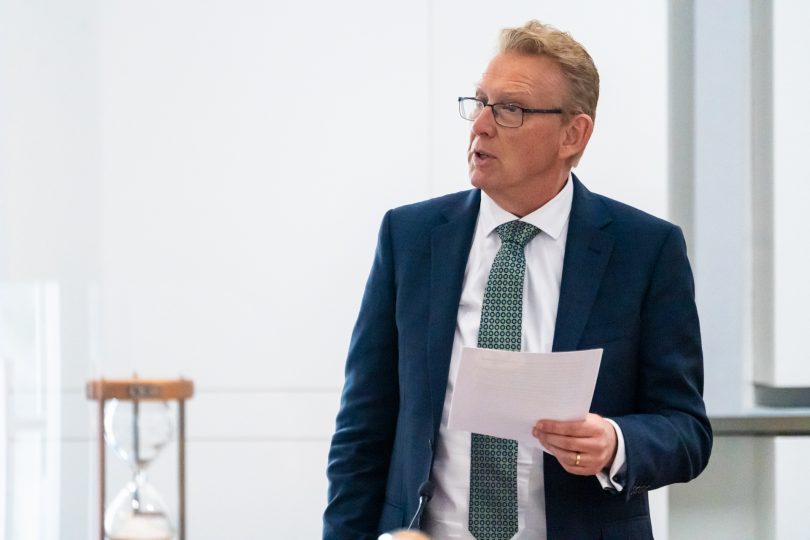
Opposition spokesperson for transport and city services Mark Parton said it’s time to get back to normal. Photo: Region Media.
In his amendment to Mr Parton’s motion, Mr Steel said the government would consider doing something similar “when there is the network capacity to accommodate an increase in passengers and when doing so would be likely to drive behaviour change”.
For example, this could be during the upcoming disruption associated with raising London Circuit and light rail construction.
Mr Steel said it would be impractical to return to a full bus timetable for the same pandemic-related reasons as drivers have to be furloughed if they test positive for the virus or are identified as close contacts.
But Mr Parton said data from the directorate proved this was not the case, and there were the available drivers to make a normal timetable work again.
Mr Steel said the ACT would return to pre-COVID timetables as soon as “practicable”.
“We currently have a number of drivers on leave for various reasons … and as a result, we couldn’t deliver reliable services if we did bring the full timetable back,” he said.
In the ACT Legislative Assembly this afternoon (6 April), Mr Steel said the Territory’s public transport pricing is already “more equitable and affordable” than in many other jurisdictions.
He said free off-peak travel for concession card holders is also already provided and there is a weekly cap on how much a person will pay for travelling on the public transport network.
The government estimated six weeks of free buses would cost around $1.8 million in revenue.
Both Mr Parton and Mr Steel appeared to have differing opinions on the success of a Tasmanian pilot which has made public transport free for five weeks until the end of April.
Mr Parton argued the first week of the Tasmanian trial succeeded in increasing patronage by around 13 per cent, proving it was a success.
However, Mr Steel said Metro Tasmania had faced “huge challenges in delivering reliable services for existing passengers and any new ones”.
He referenced one day on which 81 bus services had to be cancelled across Tasmania because of a driver shortage.
“This meant that many commuters turning up at the bus stop faced longer waits or cancelled trips – neither of which help give people confidence that public transport is a great, accessible and reliable transport option,” Mr Steel said.
He also noted a detailed analysis by the Productivity Commission which found making public transport free can increase crowding and congestion on buses and trains unless it is coupled with expensive increases to services which state transport services don’t have the money for when they cut all fare revenue.
Current patronage on the ACT’s public transport is down on pre-COVID levels by around 34 per cent. Annual revenue is also down by around $20 million.
“We don’t want to see cuts to public transport. We want to see more money invested in building a better system,” Mr Steel explained.
The ACT Council of Social Service has called for a cost-benefit analysis of a free public transport scheme in the Territory.












